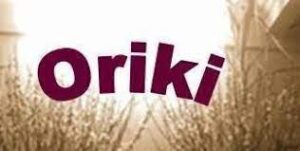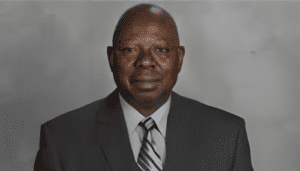Nigeria @63: Bottlenecks hindering development in educational sector
By Sodiq Adelakun
Nigeria’s educational sector has been grappling with a myriad of challenges, encompassing issues as diverse as sexual harassment, a dearth of educational materials, bribery, and the presence of unskilled teachers.
Despite concerted efforts to enhance educational accessibility, a substantial segment of Nigeria’s populace, particularly those residing in rural areas, continues to endure a dearth of quality education.
According to the World Bank, higher institutions in sub-Saharan African countries like Nigeria face the formidable policy challenge of balancing the need to raise educational quality with increasing social demand for access.
It reads, “The task of funding these institutions will become increasingly difficult in the years ahead; as the youth population continues to grow, each country will have to devise a financing approach to higher education development that enables it to meet the challenge.”
That “financing approach,” stakeholders in the education sector have come to agree, is the collaboration between the town and gown (private partners).
Public-private partnership is considered “an agreement between governments and private partners that may include the operations and financiers, according to which the private partners deliver the service in such matter that the service delivery objectives of government are aligned with the profit objectives of the private partners, and where the effectiveness of the alignment depends on a sufficient transfer of risk to the private partners.”
This predicament is exacerbated by factors such as poverty, cultural barriers, and gender inequality, all of which contribute to the perpetuation of educational disparities and the constriction of opportunities for social and economic advancement.
One of the most significant bottlenecks impeding progress in Nigeria’s educational sector is the glaring insufficiency of funding.
Though Nigeria has at least 50 Federal Government-owned and 60 state government-owned universities, it has not been able to meet the United Nations Educational, Scientific and Cultural Organisation’s (UNESCO) standard of 26 per cent budgetary allocation for the funding of education. The highest allocation so far recorded was eight per cent, yet, 60 per cent of that funding for universities goes into recurrent expenditure.
The allocated budget for education falls short of the recommended international standards, resulting in a lack of resources, dilapidated infrastructure, and inadequate teacher training. This financial constraint limits the government’s ability to provide quality education and hampers the overall development of the sector.
In a presentation to the international community on ‘Public-private partnership and sustainable higher education funding: The Nigerian experience,’ Prof. Bashiru Raji, a few years ago, asked the question: “How do Nigerian universities cope with these two key issues?” The answers are not far-fetched.
Despite the government’s efforts to improve access to quality education, there are several bottlenecks hindering the sector’s development.
Decades of neglect and underinvestment have left Nigeria’s educational infrastructure in a dire state. Many schools lack basic amenities such as classrooms, libraries, laboratories, and sanitary facilities. This deficiency not only affects the learning environment but also poses safety risks for students and teachers. Without proper infrastructure, it becomes challenging to deliver quality education and create a conducive atmosphere for learning.
The shortage of qualified teachers is another bottleneck plaguing Nigeria’s educational sector. The country faces a significant deficit in the number of trained teachers, particularly in rural areas. Additionally, the quality of education provided by some teachers is subpar due to inadequate training and professional development opportunities. This lack of qualified educators hampers the delivery of quality education and undermines the sector’s development.
The educational curriculum in Nigeria has been criticised for its outdated content and lack of relevance to the current needs of the society and job market. The curriculum fails to equip students with the necessary skills and knowledge required to thrive in a rapidly evolving world.
As a result, graduates often struggle to find employment or contribute meaningfully to the country’s development. A comprehensive curriculum reform is necessary to align education with the demands of the modern world.
Inequality and Access: Inequality in access to education remains a significant challenge in Nigeria.
Corruption and mismanagement plague Nigeria’s educational sector, further hindering its development. Cases of embezzlement of funds meant for educational projects, fraudulent practices in the admission process, and the sale of examination papers have been reported. These unethical practices undermine the integrity of the system and hinder progress.
Disparities exist between urban and rural areas, as well as among different socioeconomic groups. Many children, particularly girls and those from marginalized communities, face barriers such as poverty, early marriage, and cultural norms that hinder their access to education.
Addressing these inequalities and ensuring equal opportunities for all is crucial for the sector’s development.
Nigeria’s educational sector faces numerous bottlenecks that hinder its development and impede the country’s progress.
These problems have persisted for years, hindering the development and progress of the nation’s education system.
It is high time for the government, educational institutions, and society as a whole to come together and address these pressing concerns with a sense of urgency.
One of the most distressing issues within Nigeria’s educational sector is the prevalence of sexual harassment. This despicable behavior not only violates the rights of students but also creates an unsafe and hostile learning environment.
It is imperative that educational institutions establish strict policies and mechanisms to prevent and address such misconduct.
This includes providing support systems for victims, conducting thorough investigations, and implementing appropriate disciplinary measures against perpetrators.
Additionally, comprehensive awareness campaigns and educational programs should be introduced to foster a culture of respect and gender equality within schools and universities.
Another significant challenge faced by Nigeria’s educational sector is the scarcity of adequate teaching materials. Many schools, particularly in rural areas, lack access to up-to-date textbooks, technology, and other essential resources.
This scarcity severely hampers the quality of education provided to students, hindering their ability to acquire the necessary knowledge and skills for their future.
The government must prioritise investment in the provision of educational materials, ensuring that every student has equal access to quality resources. Partnerships with international organizations and NGOs can also play a vital role in bridging this resource gap.
The pervasive issue of bribery within Nigeria’s educational institutions undermines the integrity of the entire system. Instances of students bribing lecturers for better grades or lecturers demanding bribes for admission are all too common. This corrupt practice erodes the credibility of qualifications and devalues the hard work and talent of deserving students.
To combat this, strict anti-corruption measures must be implemented, including the establishment of transparent and accountable processes for admissions, examinations, and grading.
Additionally, awareness campaigns should be conducted to educate students and lecturers about the detrimental consequences of bribery and the importance of meritocracy.
The shortage of skilled teachers across primary, secondary, and tertiary institutions is a critical challenge that must be urgently addressed. Many educators lack the necessary qualifications, training, and pedagogical skills required to effectively impart knowledge to students.
The government should invest in comprehensive teacher training programs, ensuring that educators are equipped with the latest teaching methodologies and subject knowledge. Attracting and retaining talented teachers should also be a priority, achieved through competitive salaries, professional development opportunities, and a supportive work environment.
By implementing strict policies, investing in resources, and prioritising teacher training, Nigeria can pave the way for a brighter future, where every student has access to a safe, inclusive, and high-quality education. Only through concerted efforts can we ensure that the next generation is equipped with the knowledge and skills necessary to drive Nigeria’s progress and development.
The bottlenecks hindering the development of Nigeria’s educational sector are multifaceted and deeply rooted.
The government, in collaboration with relevant stakeholders, must prioritise these issues and implement comprehensive reforms to overcome these obstacles. Only by addressing these bottlenecks can Nigeria’s educational sector flourish and contribute to the nation’s growth and development.




